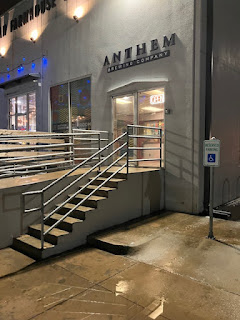What does chicken broth have to do with sewage?
Bwahaha! Hang on, I'll tell you.
One of the things I like most in my housewife-life is cooking. I especially like to fill the pantry and freezer so that we don't have to worry (as much) about where the next meal is coming from. I really, especially, like to cook beef and chicken bones into lovely broths that can be used for soups, meals, or even just a hot cup of yumminess on a chilly afternoon.
I also like to buy locally from small providers. If you, dear reader, are buying your hamburger from WalMart, you are not getting the nutrition found in a toothpick. When we lived in Illinois, it was my goal to grow most of our meats. I couldn't do much about fish, but we grew pork, poultry, lamb and goat. Our freezer was always full, and we felt RICH. Now that we're on the road, I like to find local meat markets, farm markets, and even family farms from which to buy our supper ingredients.
Do the same. You will never have better food, and, actually, your carbon footprint (if you care about it) will shrink.
Two weeks ago I met a young man in a bowling alley parking lot, not for cocaine, but for chickens.
Next day, being today, John reminded me that we had to take the RV over to a dump station to get rid of sewage. This being our home, we do those things in it that you do in a home. This being a home on wheels, those things do not just go down a drain somewhere to be treated. WE actually have to manage them.
We have 3 tanks; fresh water, grey water, (water from showers, washing, etc) and black water (you're a grown up. You can figure that out.) Sometimes we have what are called "full hookups," and our campground provides drains that are more like what you're used to at home. But we are staying in a state park this week, and few of those offer that service. So we had to drive to a sanitary station, a dump station, to dump our grey and black tanks.
This particular one was about 5 miles away; that's not usual. Most campgrounds have one onsite; this one relies on one in a nearby town. Driving away from camp means putting things away as if we're driving for 500 miles; it's a process. Dishes, counter things, furniture, etc. This time, we had that broth to be concerned with. We both discussed it, and decided that it would be safe as is.
Spoiler alert: it was not. During the ride, the dish slid toward the front of the refrigerator, and, at some point, tipped. While John was emptying the sewer tanks, I went to the back of the RV to find something, and noticed some liquid on the floor. I figured out pretty quick what had happened, and tried to carefully open the frig and straighten things out. I didn't consider the "tip," and a cascade of chicken broth started flowing out of our refrigerator. The next few minutes, if they hadn't been so aggravating, would have been hilarious, as I grabbed everything I could think of, including two area rugs, to mop up my lovely broth. I spent the rest of the afternoon washing the shelves in the frig, the bottles that had been in the door and were covered with that chicken fat, and the floor itself. There is still more cleaning to be done, I'm sure, but I am done for the day.
And now, maybe, you understand the connection between chicken broth and sewage.




Comments
Post a Comment